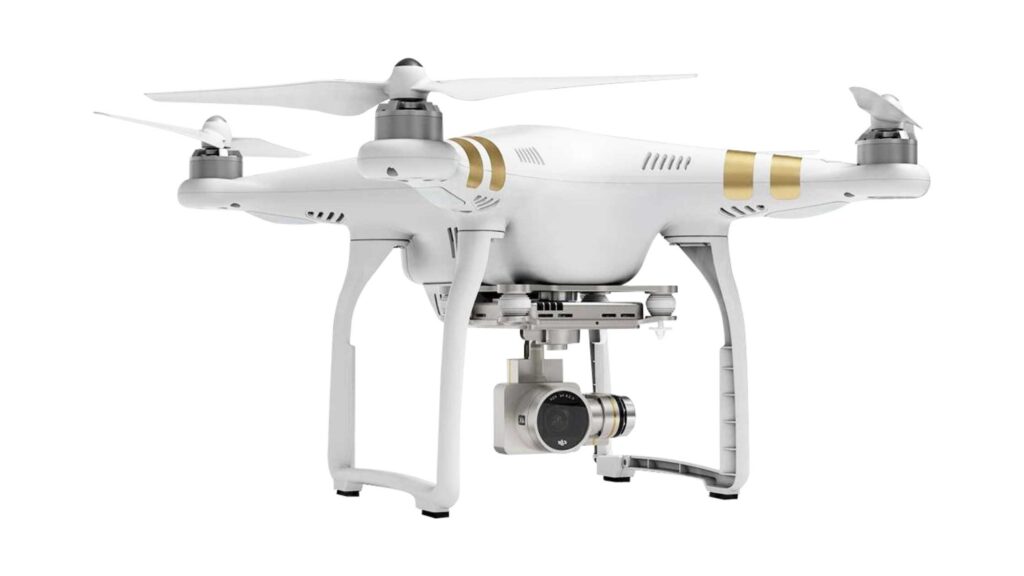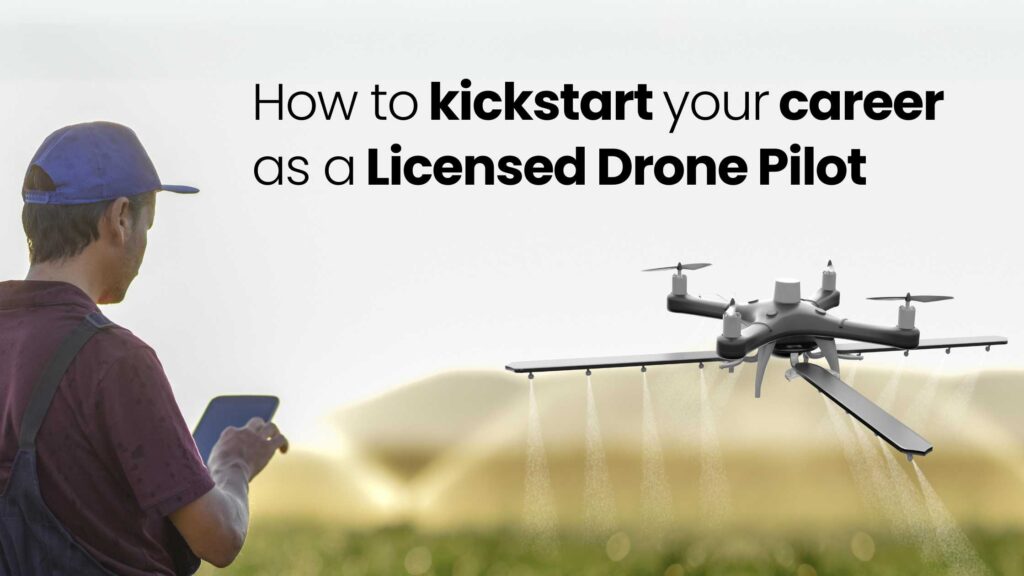The drone industry has experienced exponential growth in recent years, with applications spanning across sectors like agriculture, real estate, film production, and more. As the demand for skilled operators continues to rise, enrolling in drone pilot training presents an exciting opportunity to carve a rewarding career path. This guide will walk you through the essential steps to becoming a licensed drone pilot and entering this dynamic field.
How to become a Licensed Drone Pilot?
As drones continue to transform industries ranging from agriculture to filmmaking, the demand for licensed drone pilots is soaring. If you’re excited about flying drones and ready to turn your passion into a profession, here’s a step-by-step guide to help you achieve your career goal:

1. Understand Drone Basics
Before diving into drone pilot training, it’s essential to grasp the fundamentals of drone technology. Get familiar with the different types of drones, their components, and how they function. Learn about their various applications—from capturing stunning aerial shots to conducting precision farming inspections. This foundational knowledge will help set the stage for your training and ensure you make informed career decisions.
2. Enroll in a Drone Pilot Training Program
Structured drone pilot training is crucial for acquiring the skills needed to become a successful drone pilot. Enroll in a reputable drone pilot training program that offers comprehensive instruction. Look for programs that cover essential topics such as drone operation, safety protocols, and legal regulations. Opt for courses that include hands-on flying experience and practical exercises to build your skills and confidence. A well-rounded program will prepare you for the challenges of the field and provide you with valuable knowledge and techniques.
3. Gain Hands-On Experience
Practical experience is key to mastering drone pilot training. While theoretical knowledge is important, actual flying practice is where you develop your skills. Spend time flying different types of drones in various conditions to gain a solid grasp of control and manoeuvring. Practice essential manoeuvres such as takeoff, landing, and navigating obstacles. Remember to follow safety guidelines and regulations to ensure a safe and effective learning experience.
4. Obtain Required License
To operate drones professionally in India, you must obtain the necessary certifications as outlined by the Directorate General of Civil Aviation (DGCA). The most important certification is the Remote Pilot Certificate (RPC), which is mandatory for anyone looking to fly drones for commercial purposes. To obtain this certification, you need to complete training from a DGCA-approved drone pilot training school. The training typically includes both theoretical knowledge and practical flying experience. After successfully completing the course, you’ll need to pass a written exam and a flight test to demonstrate your skills. This certification not only validates your competence as a drone pilot but also boosts your credibility in the industry, opening doors to exciting career opportunities.
Why DGCA license is important to fly drones?
The DGCA license is crucial for flying drones in India as it ensures that operators adhere to national safety and regulatory standards. It validates that pilots have the necessary training and knowledge to operate drones safely and legally. Without this certification, flying drones for commercial purposes is prohibited, making the DGCA license essential for anyone looking to work professionally in the drone industry.
5. Build a Portfolio and Network
Once you’ve obtained your certification, it’s time to showcase your skills and build a strong portfolio. Create a collection of your best drone footage and project samples to demonstrate your expertise. A well-crafted portfolio will help you attract potential clients or employers and highlight your versatility as a drone pilot. Networking is also crucial in the drone industry. Attend industry events, join online forums, and connect with other professionals to expand your network and discover new opportunities.
6. Stay Updated and Continue Learning
The drone industry is constantly evolving with new technologies and regulations. To stay competitive, it’s important to stay updated on industry trends and advancements. Continue learning by participating in workshops, attending conferences, and exploring new technologies. Staying informed will not only enhance your skills but also ensure you’re well-prepared for future developments in the field.
Top Career Opportunities for Licensed Drone Pilots
Licensed drone pilots are unlocking a wide range of career opportunities as industries increasingly adopt drone technology. Here are five exciting paths you can pursue as a certified drone operator:
- Aerial Photography and Filmmaking – Capture high-quality visuals for media, advertising, and events.
- Agriculture – Monitor crops and livestock to boost productivity through precision farming.
- Infrastructure Inspections – Ensure the safety of bridges, towers, and pipelines through aerial surveys.
- Real Estate – Provide captivating property visuals for marketing and sales.
- Disaster Relief – Support search and rescue operations with real-time aerial data during emergencies.
Government Support and Initiatives for Aspiring Drone Pilots in India
The Indian government is actively supporting the growth of licensed drone pilots through several initiatives that aim to promote the use of drones in various sectors such as agriculture and defence, further driving demand for skilled drone pilots.
Here are a few key points on government support:
- Drone Rules 2021: Simplified regulations making it easier to register and operate drones.
- PLI Scheme: Financial incentives for drone and drone component manufacturers.
- Drone Shakti: Government initiative to promote the use of drones in various sectors.
- Agriculture Sector Support: Financial backing for drone applications in precision farming.
- Drone Corridor Development: Plans to create dedicated airspace for drone operations.
Becoming a licensed drone pilot opens up exciting opportunities in a rapidly growing industry. By following these steps—understanding the basics, enrolling in a training program, gaining hands-on experience, obtaining certifications, building a portfolio, and staying updated—you’ll be well on your way to a successful career flying high in the world of drones.

